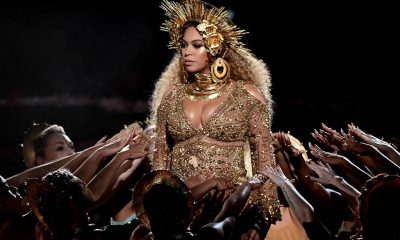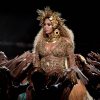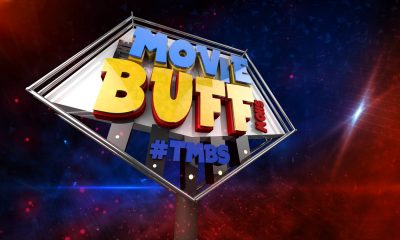Home
NBC Begins Digital Broadcasting Switch-Over in Lagos, Others 1st January 2015
Nigeria Broadcasting Commission (NBC) has ruled out extension of digital switch over, as the first phase of the new era is expected to begin in Lagos, Abuja, Port Harcourt, Kaduna and Kano from tomorrow, January 1, 2015.
Although, the government said it would complete switchover by January, for many other countries that might be looking for the opportunity to extend the transition, Hamadoun Toure, out-going ITU secretary general, recently dashed the hope by ruling out any deadline extension for countries that will fail to meet the June 17, 2015 transition.
Speaking during an NTA programme on the Digital Transition on Tuesday, Engineer Edward Amana, chairman, DigiTeam, said in spite obvious challenges, the Commission will go ahead to switch-over from analogue to digital broadcasting.
He said, “We do not have a choice. We have to, because there are so many implications of cannot switch-over. We will become an island on our own. We cannot get protection from our neighbouring countries who have already gone digital. Apart from that, after the transition, the analogue equipment becomes obsolete. And for you to maintain the equipment it becomes extremely expensive. We are setting a target for ourselves to transit by 1th of January.
However, we are going to transit in phases. What we are going to do it take the major cities first and move to the rural areas. We will probably start Abuja, Lagos, Port Harcourt and Kano, Kaduna during the phase one. In phase two, we will move to other cities till we go round. As we move from cities to others, we can learn from the mistakes and correct ourselves. That way, we will be able to fast-track our transition.
He said the team has planned for public enlightenment campaigns, adding that if the public fail to appreciate the transition, it might affect the whole process.
The assignment of the DigiTeam is to draw the roadmap for the transition from analogue to digital broadcasting in Nigeria.
What it entails is the processes to ensure all the television stations in Nigeria switch-off their analogue transmitters by January 1, 2015, while the digital transmission takes effect.
According to Amana, “There are many implications for this, both business models, regulatory issues and the people at home who currently have the analogue receivers in their homes. There is this apprehension that if we change from the analogue to digital, are we going to throw away our current television sets and buy new ones or what?
“Aside the inauguration of the team, government has to (improve) on the regulation; there are issues with the current regulations that need to be amended. To an extent, government has to provide some seed money for the transition. For the people at home; currently, if you have an analogue television, you will need to buy a set-up box to be able to enjoy the digital signals. And for the broadcasting houses, there are two categories of situation. The way they do their production now will have to change. Those who do not have digital equipment will have to upgrade their studios to be able to produce digital programming. And the programming will have to include some level of synopsis as a guide to the viewers at home, because they that are at homes will expect more from the programs broadcasters produce.
“The era will give producers enough capacity to innovate their programs. You can imbed in your programming a guide which gives a run-down of what is coming maybe in the next one week or so. So that, I as a viewer will check and find out the ones I want to watch and set my recorder to record during the period it is coming up. The synopsis gives the parent and idea if the program is suitable for the children to watch or not, so they can also help in censoring it their own way”.
From the transmission point of view, the Chairman said that the existing analogue has to change to digital as it will involve upgrading existing transmitters or acquiring new ones.
“But, we have agreed one, which government has adopted is, rather than ever station buying a digital transmitter, some signal carriers will be appointed that will be responsible for transmission, so that broadcasters can engage themselves in the production of local contents or programming. If you have the capacity, you should have the equipment to produce. Once the burden of buying new transmitter is taken off the shoulders of the broadcaster, the savings can go into content production,” he said.
On set-up boxes which are paramount to enable analogue Tv owners to enjoy the digital era, he said, “Let me take the example of America that we are a bit familiar with; what happened then was that the government provided the basic coupons for poor families who cannot afford digital television or set-up boxes. The basic set-up box was about $40 when they transited in 2009. Each family was a given a coupon to buy two, amounting to $80.
“For Nigeria, what we have recommended is that from the available statistics we have 20 million (analogue) television sets in circulation and we feel that this is good market for any manufacturer to put up such business in Nigeria.
“It is a guaranteed market of 20 million; the economy of scale will bring down the prices if done locally. We recommended for incentives like giving them some tax holiday, customer duty-free for the equipment that will be used to manufacture locally. We are targeting a price tag of N2500, which we feel should be affordable by Nigerian who has television already. So, we are not asking government o release money for subsidy or buy and give rather to create enabling environment to make it affordable. A family that can afford to buy a television set that costs over N10,000, they should be able to afford to buy the set-up box to enjoy the digital era”.
Amana admitted that the time available for transmission is too short.
“Fortunately, NTA has transmitting stations in over 102 locations in the country. Government has approved that NTA will be one of the carriers for the digital (network) transmission. What have been approved on the white-paper are: NTA and two others. Let me correct and impression. NTA the carrier will be different from the content provider. There will be separation, because it will be carrying signals of other competitors. The transmission end of the NTA will be licensed as one of the carriers; as an independent entity,” he added.
The DigiTeam chairman also said that content providers will be licensed by the NBC; apart from the existing broadcasters.






















Recent Comments